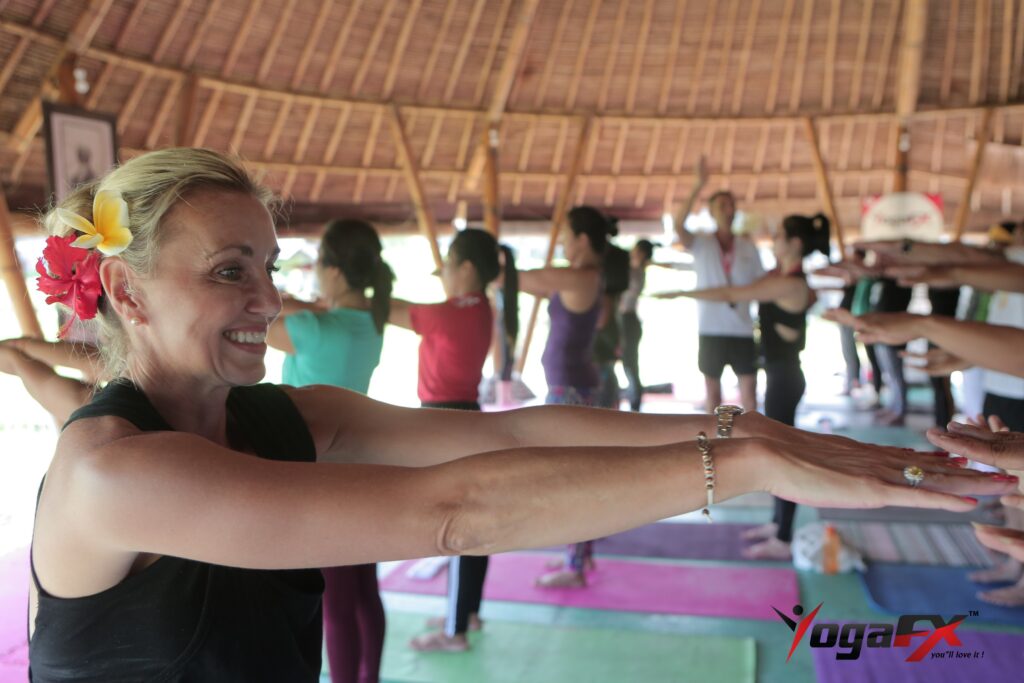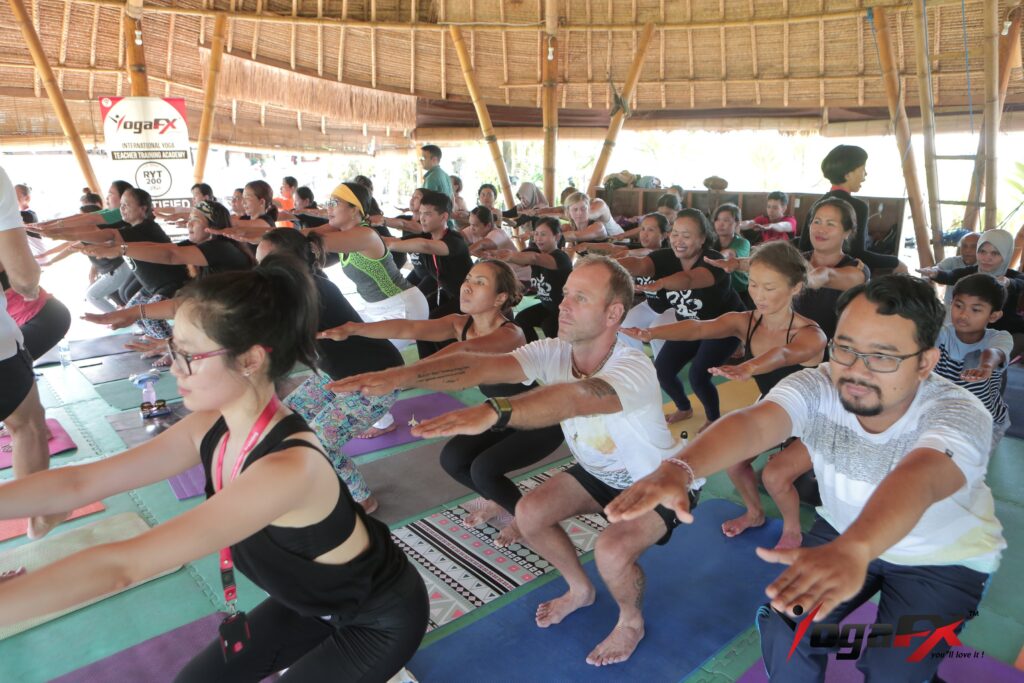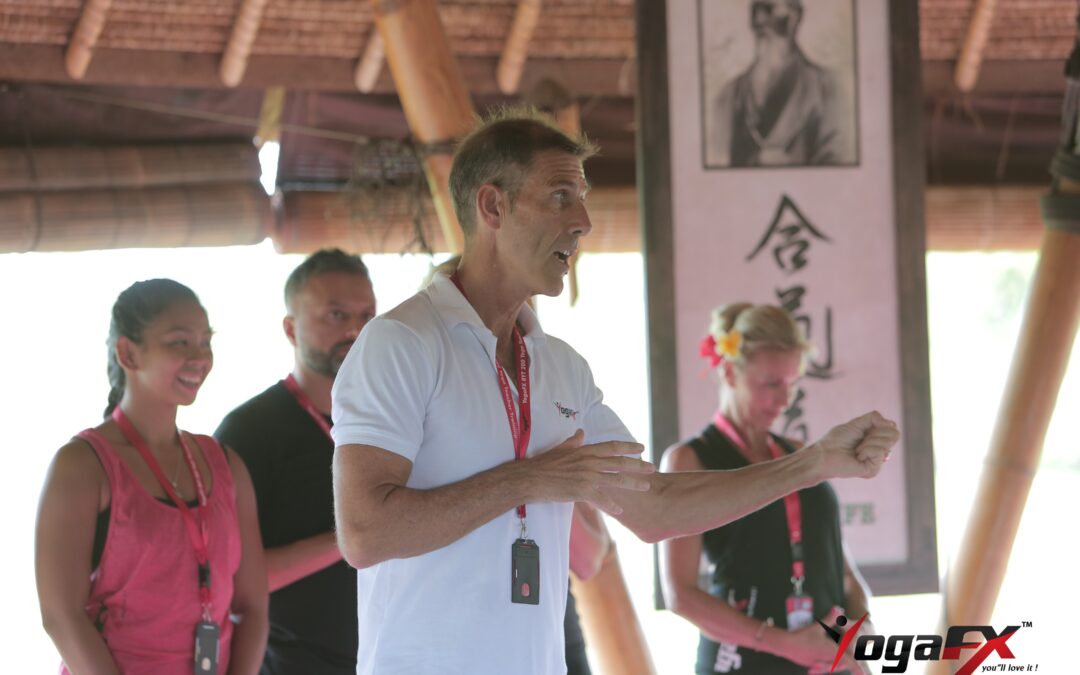Experiencing the debilitating symptoms of fibromyalgia can significantly impact one’s quality of life, often leaving individuals in search of effective and holistic approaches for relief. Amidst the myriad of treatment options, yoga for fibromyalgia has emerged as a promising practice that offers physical, mental, and emotional support. This gentle and mindful discipline combines breathwork, movement, and meditation to address the unique needs of those living with fibromyalgia. By incorporating yoga into their wellness routine, individuals with fibromyalgia can discover a pathway to holistic healing, increased resilience, and enhanced well-being.

Understanding Fibromyalgia: Symptoms and Challenges
Fibromyalgia a chronic condition characterized by widespread musculoskeletal pain, fatigue, and tenderness. Individuals with fibromyalgia often experience additional symptoms such as sleep disturbances, cognitive difficulties, and mood disturbances. The challenges faced by those living with fibromyalgia can be overwhelming, affecting their physical abilities, emotional well-being, and overall quality of life. Seeking holistic approaches that address the multifaceted nature of fibromyalgia is crucial to managing its symptoms effectively.
“RESPECT PEOPLE’S PERSONAL SPACE, THEY WILL LOVE YOU FOR WHO YOU ARE “
The Science Behind Yoga for Fibromyalgia
Scientific research has shed light on the positive effects of yoga for individuals with fibromyalgia. Studies have shown that regular yoga practice can help alleviate pain, reduce fatigue, improve sleep quality, and enhance overall well-being. The mind-body approach of yoga, which combines physical postures, breathwork, and mindfulness, is believed to modulate pain perception, promote relaxation, and positively influence the nervous system. Yoga’s holistic benefits make it a promising practice for managing the complex symptoms of fibromyalgia.

Gentle and Mindful Yoga Practices for Fibromyalgia
Yoga practices that are gentle, mindful, and adaptable are particularly beneficial for individuals with fibromyalgia. Hot yoga, also known as Bikram yoga or 26 and 2 yoga, popular style that can be modified to accommodate the needs and limitations of individuals with fibromyalgia. Hot yoga is practiced in a heated room and follows a specific sequence of 26 postures and 2 breathing exercises. The gentle, controlled movements and the therapeutic heat of the room can help soothe muscles, reduce pain, and promote flexibility.
To ensure a safe and supportive yoga practice, it is essential to modify poses and sequences to accommodate varying levels of pain and physical limitations. Individuals with fibromyalgia can benefit from incorporating gentle stretching, joint mobilization, and restorative postures into their yoga routine. Additionally, breathwork techniques and meditation can help calm the mind, reduce stress, and improve overall well-being.
Benefits of Yoga for Fibromyalgia
Yoga offers numerous benefits for individuals with fibromyalgia. Regular practice can help alleviate pain, reduce muscle tension, and increase flexibility. The controlled breathing techniques utilized in yoga promote relaxation and stress reduction, which can improve sleep quality and overall energy levels. Moreover, the mind-body connection cultivated through yoga empowers individuals to develop a heightened sense of self-awareness and self-compassion, fostering a positive outlook and improved emotional well-being.
Through yoga, individuals with fibromyalgia can cultivate a sense of empowerment and agency over their health. It allows them to engage in gentle physical activity, fostering a sense of accomplishment and promoting a positive body image. The supportive community that often accompanies yoga practice also provides a sense of belonging, understanding, and shared experiences.
Creating a Safe and Supportive Yoga Practice
To create a safe and supportive yoga practice, individuals with fibromyalgia should communicate their specific needs and limitations to their yoga instructor. Finding an experienced instructor who is knowledgeable about fibromyalgia and can guide them in modifying poses and sequences is essential. It is important to listen to the body’s signals and not push beyond comfortable limits, allowing for modifications and rest as needed. Practicing yoga in a non-competitive and non-judgmental environment fosters self-acceptance and encourages individuals to honor their bodies’ abilities and limitations.
Complementary Approaches: Integrating Yoga with Medical Care
Yoga should be viewed as a complementary approach to conventional medical care for fibromyalgia. It is important for individuals with fibromyalgia to consult with their healthcare professionals to ensure that yoga practice aligns with their specific needs and treatment plan. Healthcare providers, including doctors, physical therapists, and pain management specialists, can offer guidance on how to integrate yoga effectively into the overall management of fibromyalgia. The combination of medical care and yoga practice can create a comprehensive approach that addresses the physical, mental, and emotional aspects of fibromyalgia.
Empowering Self-Care: Yoga Beyond the Mat
Yoga for fibromyalgia extends beyond the physical practice on the mat. It can inspire individuals to embrace self-care practices and mindfulness in their daily lives. Mindfulness techniques learned through yoga, such as breathwork and meditation, can be integrated into daily routines to reduce stress, promote relaxation, and enhance overall well-being. Engaging in self-care practices, such as proper nutrition, adequate rest, and stress management, supports the body’s healing process and optimizes the benefits gained from yoga practice.

Conclusion
Yoga has emerged as a promising practice for individuals with fibromyalgia, offering holistic relief and well-being. Its gentle and mindful approach addresses the complex symptoms of fibromyalgia, including pain, fatigue, and emotional distress. By incorporating yoga into their wellness routine, individuals with fibromyalgia can experience the physical benefits of increased flexibility, reduced pain, and improved sleep quality. Moreover, the mind-body connection fostered by yoga promotes emotional well-being, self-acceptance, and resilience. Aspiring yoga instructors can also pursue specialized training, such as hot yoga teacher training, 26 and 2 yoga teacher training, or Bikram yoga teacher training, to gain the knowledge and skills necessary to support individuals with fibromyalgia in their yoga journey.
In the pursuit of accessibility, online Bikram yoga teacher training is also available, offering individuals the opportunity to deepen their understanding and practice of yoga from the comfort of their own homes. This online training provides flexibility and convenience, ensuring that aspiring teachers can embark on their journey of sharing the transformative benefits of Bikram yoga with others, even from a distance.
Yoga offers a path to holistic healing and well-being for individuals with fibromyalgia. Then empowering them to take an active role in their own health and fostering a positive outlook on life. Through dedicated practice, individuals can embrace the transformative power of yoga and discover a sense of balance. Then strength, and resilience in their journey with fibromyalgia.

